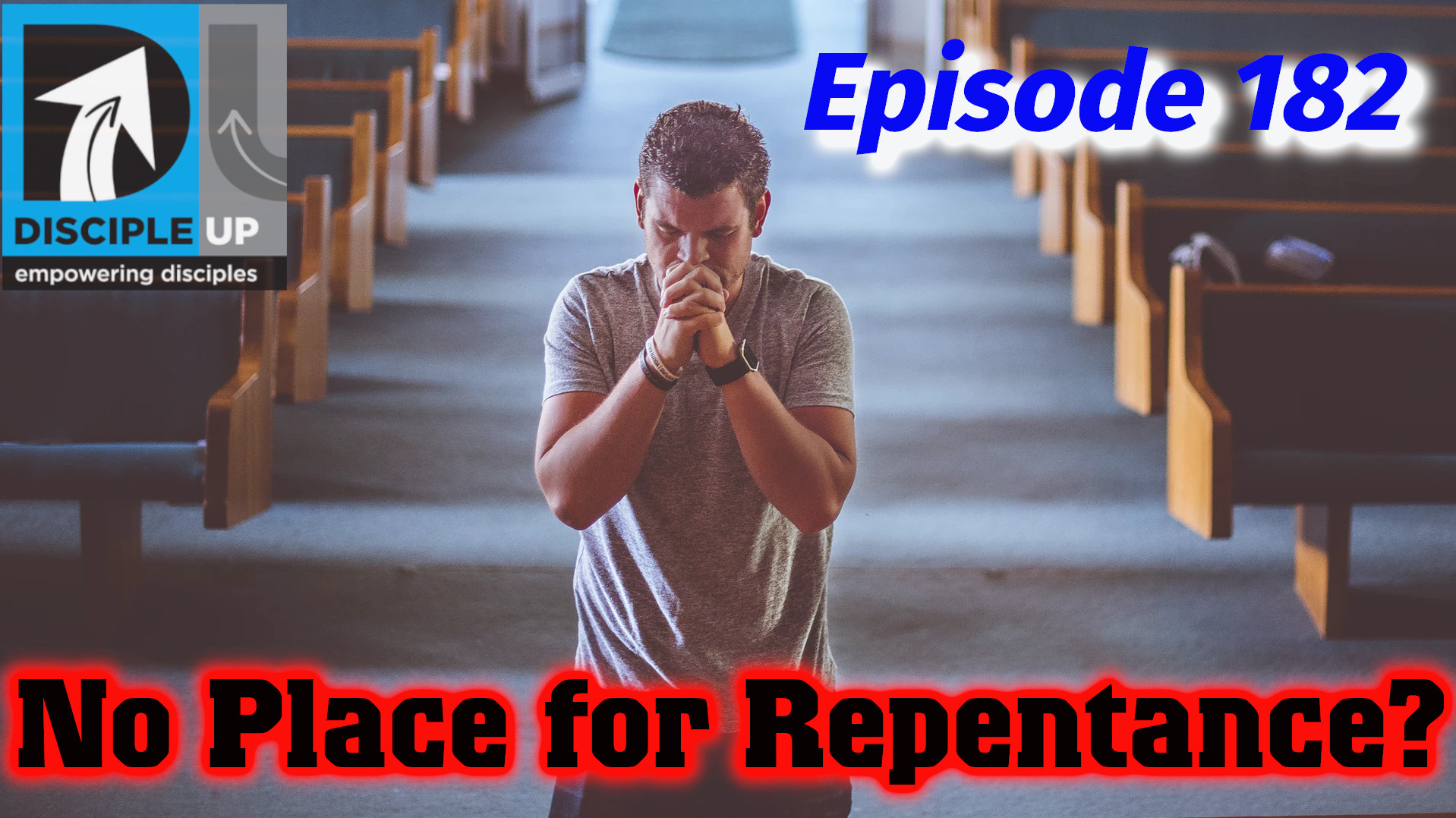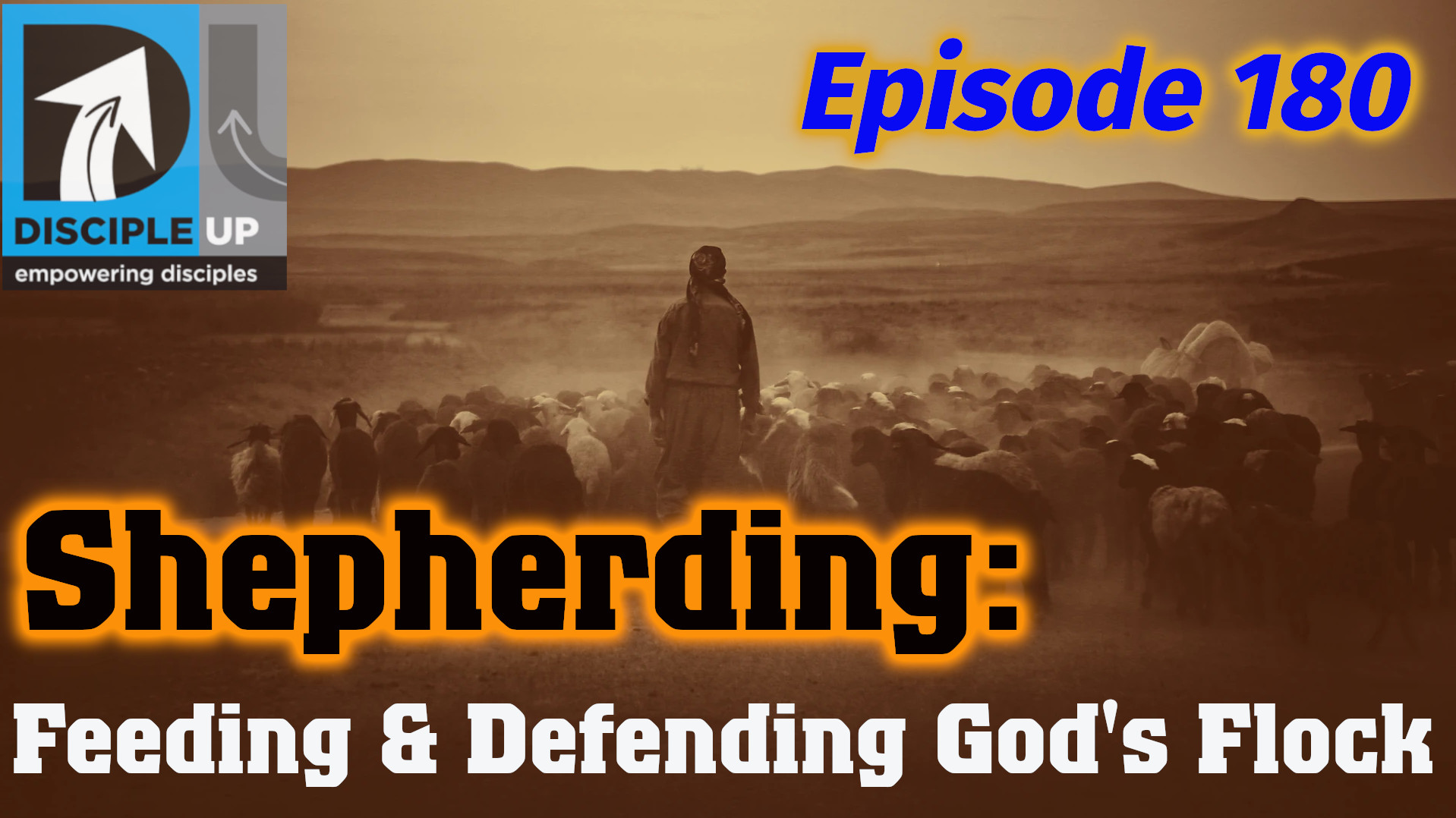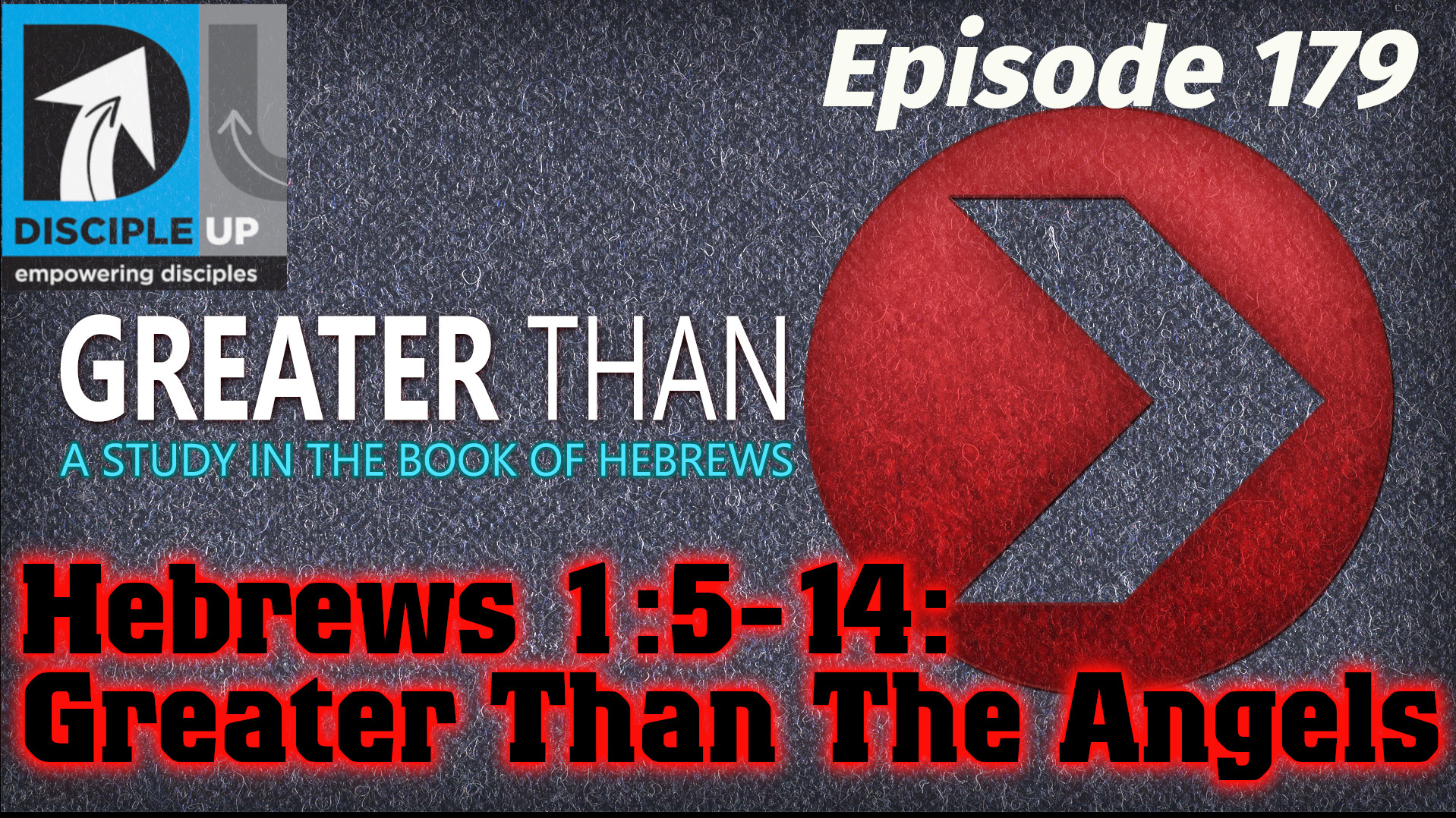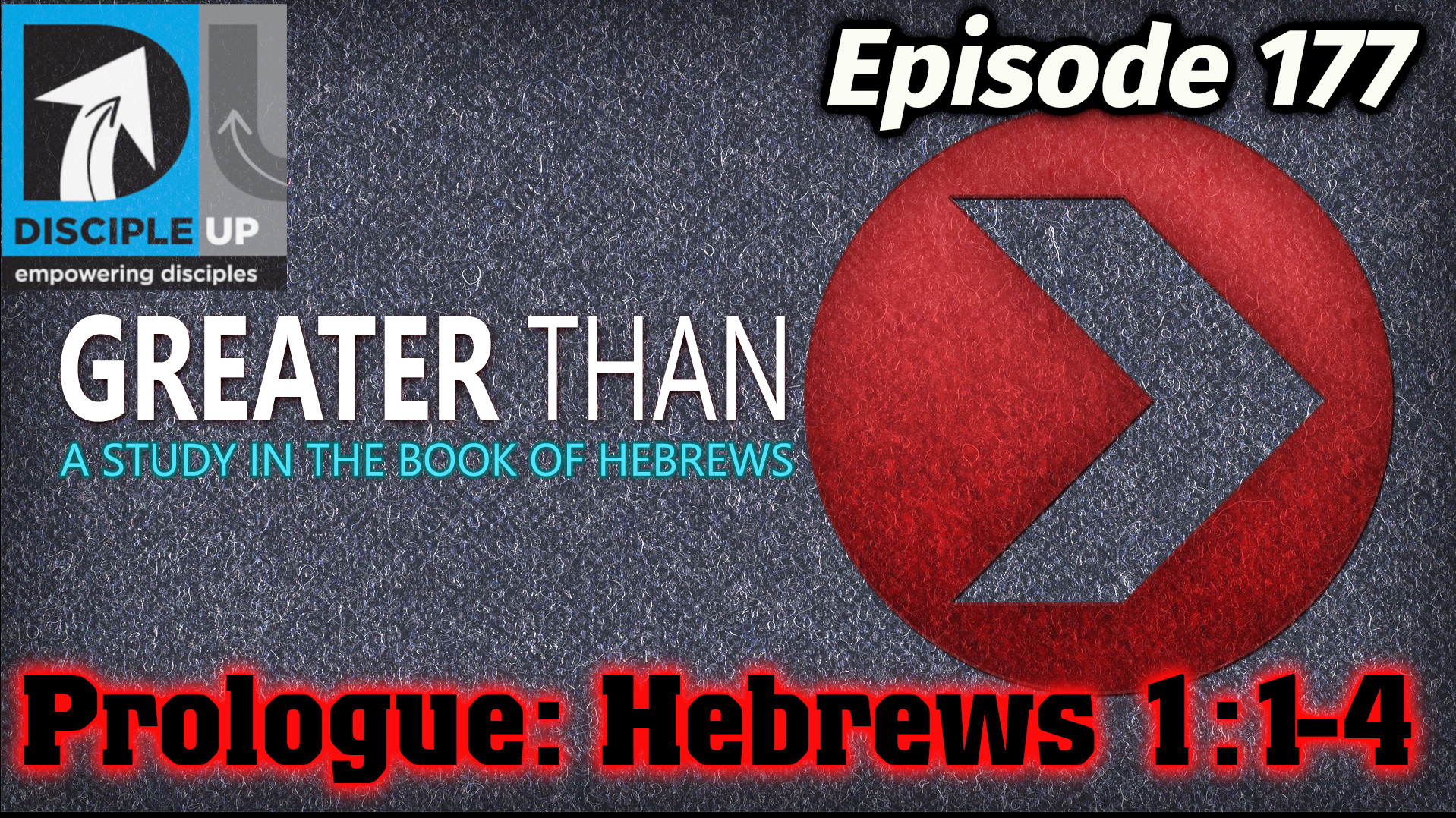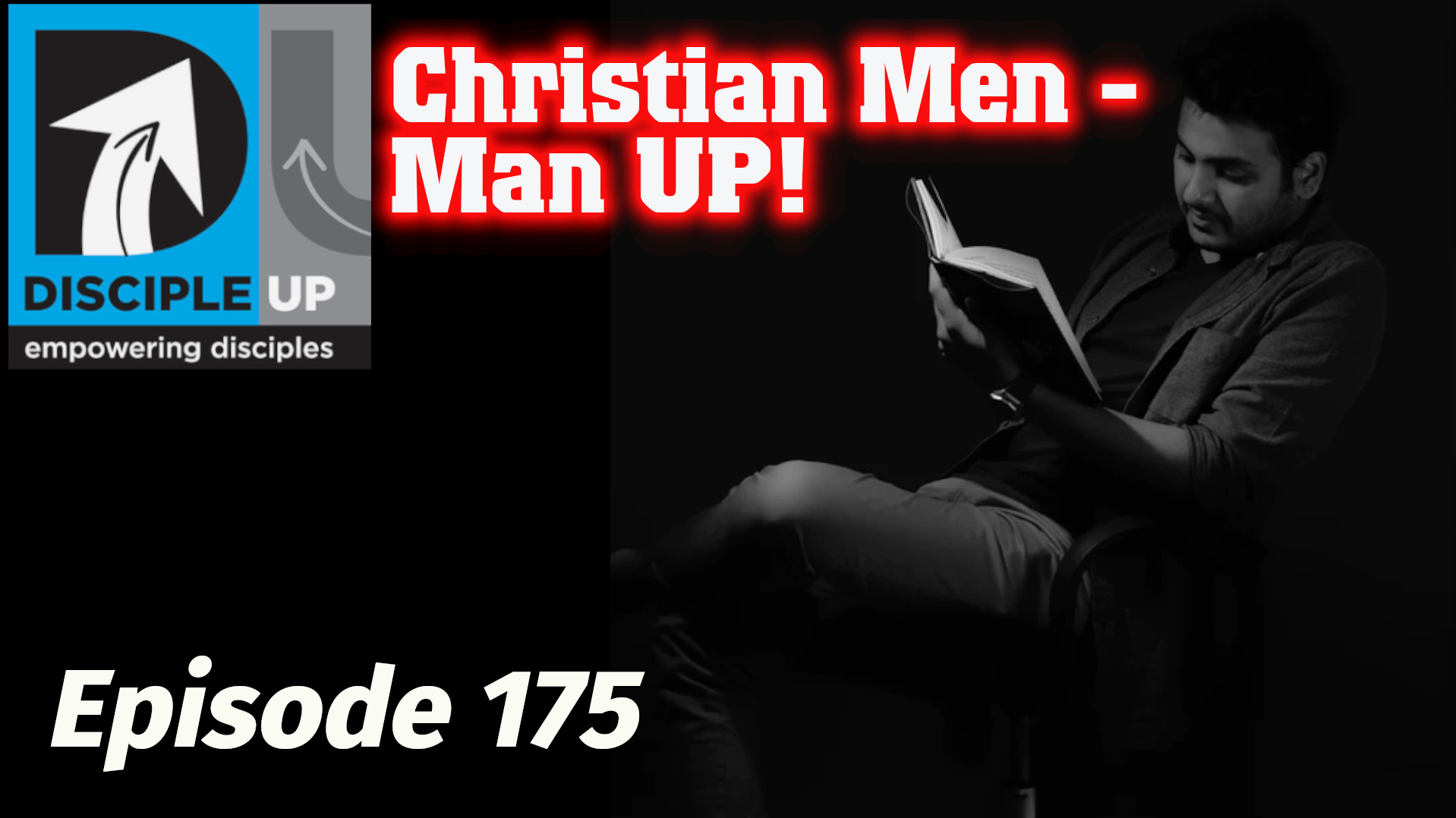Disciple Up #176
Hard Work & Hebrews
By Louie Marsh, 9-9-2020
Since I’m recording this on Labor Day, and since this has been on my mind lately, I preached a little bit about this two weeks ago, I thought I’d an episode on this as well as do an introduction to Hebrews.
Work Is Not a Result of the Fall
15 The LORD God took the man and put him in the garden of Eden to work it and keep it. 16 And the LORD God commanded the man, saying, “You may surely eat of every tree of the garden, 17 but of the tree of the knowledge of good and evil you shall not eat, for in the day that you eat of it you shall surely die.” Genesis 2:15-17 (ESV)
“to serve, cultivate, enslave, work.” This root is used widely in Semitic and Canaanite languages. This verb appears about 290 times in all parts of the Old Testament. The verb is first used in Gen. 2:5: “…And there was not a man to till the ground.” God gave to man the task “to dress [the ground]
Vine’s Expository Dictionary of Old Testament and New Testament Words.
Working in An Environment That Fights You Is
17 And to Adam he said, “Because you have listened to the voice of your wife and have eaten of the tree of which I commanded you, ‘You shall not eat of it,’ cursed is the ground because of you; in pain you shall eat of it all the days of your life; 18 thorns and thistles it shall bring forth for you; and you shall eat the plants of the field. 19 By the sweat of your face you shall eat bread, till you return to the ground, for out of it you were taken; for you are dust, and to dust you shall return.” Genesis 3:17-19 (ESV)
Give God my all by working HARD.
6 Go to the ant, O sluggard; consider her ways, and be wise. 7 Without having any chief, officer, or ruler, 8 she prepares her bread in summer and gathers her food in harvest. 9 How long will you lie there, O sluggard? When will you arise from your sleep? 10 A little sleep, a little slumber, a little folding of the hands to rest, 11 and poverty will come upon you like a robber, and want like an armed man. Proverbs 6:6-11 (ESV)
23 Whatever you do, work heartily, as for the Lord and not for men, 24 knowing that from the Lord you will receive the inheritance as your reward. You are serving the Lord Christ. Colossians 3:23-24 (ESV)
- God’s wisdom: to see everything from a Christ Centered perspective.
10 For we are his workmanship, created in Christ Jesus for good works, which God prepared beforehand, that we should walk in them. Ephesians 2:10 (ESV)
Work Is Tied to God’s Will for Us
24 There is nothing better for a person than that he should eat and drink and find enjoyment in his toil. This also, I saw, is from the hand of God, Ecclesiastes 2:24 (ESV)
10 Whatever your hand finds to do, do it with your might, for there is no work or thought or knowledge or wisdom in Sheol, to which you are going. Ecclesiastes 9:10 (ESV)
8 The LORD will fulfill his purpose for me; your steadfast love, O LORD, endures forever. Do not forsake the work of your hands. Psalm 138:8 (ESV)
11 To the present hour we hunger and thirst, we are poorly dressed and buffeted and homeless, 12 and we labor, working with our own hands. When reviled, we bless; when persecuted, we endure; 13 when slandered, we entreat. We have become, and are still, like the scum of the world, the refuse of all things. 1 Corinthians 4:11-13 (ESV)
Because Work Is Tied to God’s Will Refusal to Work (when able) Is a Sin
6 Now we command you, brothers, in the name of our Lord Jesus Christ, that you keep away from any brother who is walking in idleness and not in accord with the tradition that you received from us. 7 For you yourselves know how you ought to imitate us, because we were not idle when we were with you, 8 nor did we eat anyone’s bread without paying for it, but with toil and labor we worked night and day, that we might not be a burden to any of you. 9 It was not because we do not have that right, but to give you in ourselves an example to imitate. 10 For even when we were with you, we would give you this command: If anyone is not willing to work, let him not eat. 11 For we hear that some among you walk in idleness, not busy at work, but busybodies. 12 Now such persons we command and encourage in the Lord Jesus Christ to do their work quietly and to earn their own living. 13 As for you, brothers, do not grow weary in doing good. 14 If anyone does not obey what we say in this letter, take note of that person, and have nothing to do with him, that he may be ashamed. 15 Do not regard him as an enemy, but warn him as a brother. 2 Thessalonians 3:6-15 (ESV)
Working with My Gifts & Abilities IS God’s Will
7 To each is given the manifestation of the Spirit for the common good. 8 For to one is given through the Spirit the utterance of wisdom, and to another the utterance of knowledge according to the same Spirit, 9 to another faith by the same Spirit, to another gifts of healing by the one Spirit, 10 to another the working of miracles, to another prophecy, to another the ability to distinguish between spirits, to another various kinds of tongues, to another the interpretation of tongues. 11 All these are empowered by one and the same Spirit, who apportions to each one individually as he wills. 1 Corinthians 12:7-11 (ESV)
27 To them God chose to make known how great among the Gentiles are the riches of the glory of this mystery, which is Christ in you, the hope of glory. 28 Him we proclaim, warning everyone and teaching everyone with all wisdom, that we may present everyone mature in Christ. 29 For this I toil, struggling with all his energy that he powerfully works within me. Colossians 1:27-29 (ESV)
2 “See, I have called by name Bezalel the son of Uri, son of Hur, of the tribe of Judah, 3 and I have filled him with the Spirit of God, with ability and intelligence, with knowledge and all craftsmanship, 4 to devise artistic designs, to work in gold, silver, and bronze, 5 in cutting stones for setting, and in carving wood, to work in every craft. 6 And behold, I have appointed with him Oholiab, the son of Ahisamach, of the tribe of Dan. And I have given to all able men ability, that they may make all that I have commanded you: 7 the tent of meeting, and the ark of the testimony, and the mercy seat that is on it, and all the furnishings of the tent, 8 the table and its utensils, and the pure lampstand with all its utensils, and the altar of incense, 9 and the altar of burnt offering with all its utensils, and the basin and its stand, 10 and the finely worked garments, the holy garments for Aaron the priest and the garments of his sons, for their service as priests, 11 and the anointing oil and the fragrant incense for the Holy Place. According to all that I have commanded you, they shall do.” Exodus 31:2-11 (ESV)
An Introduction to the Book of Hebrews
Introduction to Hebrews
The letter to the Hebrews is a unique book in the New Testament. It begins as an essay (Heb 1:1-2), progresses as a sermon (Heb 2:1-4), and ends as a letter (Heb 13:23-25). Its contents are deep and challenging. Many Christians find it difficult; some equate its difficulty with the book of Revelation.
But for Christians willing to take the time to read and reflect upon it, they will be:
Reminded of how blessed they are to have trusted in Christ
Impressed with the superiority of Christ and His New Covenant over Moses and the Old Covenant
Warned of the danger of apostasy and the need for steadfastness in their faith.
AUTHOR
The author does not identify himself. Many believe it to be the apostle Paul (e.g., Clement of Alexandria) and have offered arguments in his favor (cf. Commentary on Hebrews, Robert Milligan, p. 5-19). Yet it seems unlikely when you consider the author’s statement, “…was confirmed to us by those who heard Him” (Heb 2:3). This suggests the author received the gospel message second-hand, while Paul declared that he had not received the gospel from or through men (Gal 1:11-12).
Other names have been proposed over the years: Barnabas (suggested by Tertullian), Apollos (suggested by Luther), even Priscilla (suggested by Harnack). Perhaps Origen says it best, “But who wrote the epistle, to be sure, only God knows.”
RECIPIENTS
The general consensus is that this letter was written to Jewish Christians. There is uncertainty as to where they and the author were at the time of composition. Many believe the recipients were in Palestine, and the author in Rome. Others suggest the readers were in Rome and the author elsewhere, based upon a possible implication in Heb 13:24. In any case, they were Jewish Christians whom the author knew personally (Heb 10:34; 13:19).
DATE
We know the epistle was written prior to 96 A.D., because Clement of Rome quotes from Hebrews in his letter that was written at that time. There are certainly strong indications that it was written prior to 70 A.D….
There is no mention of the destruction of Jerusalem and the temple
The author writes as though priests were still offering sacrifices – Heb 8:4; 10:11
If the Jewish Christians were in Palestine, it was likely before or at the beginning of the Jewish Wars (ca. 66-70 A.D.; cf. Heb 12:4).
The time frame of 63-65 A.D. is often suggested.
PURPOSE AND THEME
The author wrote this epistle to prevent his readers from abandoning their faith in Christ (Heb 2:1-4). To encourage his Jewish brethren not to go back to the Old Law, he endeavored to show the superiority of Christ and His Covenant (Heb 8:1-2,6). A key word found throughout the epistle is “better”:
- Christ is “better than the angels” – Heb 1:4
- We enjoy “the bringing in of a better hope” – Heb 7:19
- Jesus has become “the surety of a better covenant” – Heb 7:22
- He is also “the Mediator of a better covenant, which was established on better promises” – Heb 8:6
- The heavenly things benefit from “better sacrifices” – Heb 9:23
Indeed, the purpose of this epistle was to exhort his readers to remain faithful to the much better things they have in Christ (Heb 13:22). As for its theme here’s what almost all Bible scholars would agree with:
The Superiority of Christ and The New Covenant
OUTLINE
1) The superiority of Christ – Heb 1:1-8:6
- Better than the prophets, as a much better Spokesman – Heb 1:1-3
- Better than the angels, by virtue of His Deity and humanity – Heb 1:4-2:18
- Better than Moses, for He is the Son who provides a heavenly rest – Heb 3:1-4:13
- Better than Aaron, as His priesthood is a superior one – Heb 4:16-8:6
2) The superiority of the New Covenant – Heb 8:7-10:18
- For it is based upon better promises – Heb 8:7-13
- For it is based upon a better sanctuary – Heb 9:1-28
- For it is based upon a better sacrifice – Heb 10:1-18
3) Exhortations drawn from this superiority – Heb 10:19-13:25
- Draw near to God and hold fast – Heb 10:19-39
- Run the race of faith with endurance – Heb 11:1-12:29
- Miscellaneous exhortations – Heb 13:1-25
Where this information came from: https://www.blueletterbible.org/study/eo/Heb/Heb000.cfm
Please Get In Touch!
Email – louie@discipleup.org






Check out the Disciple Up Facebook page:

My books –




